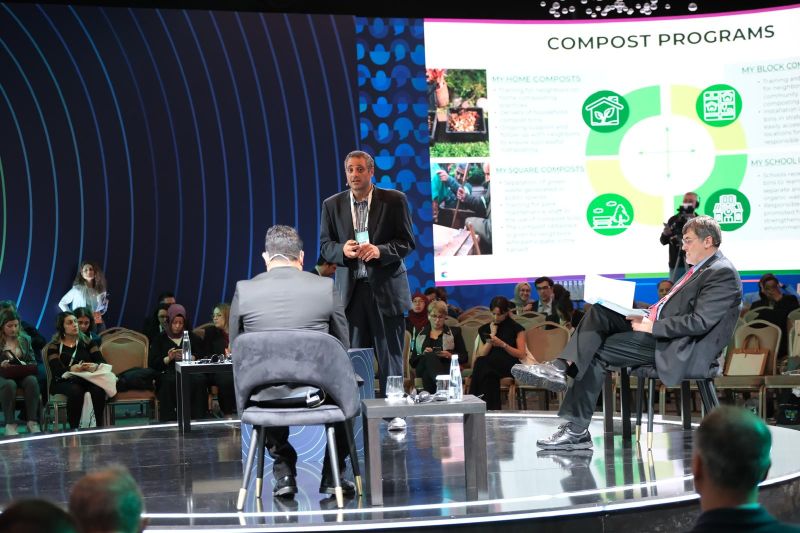Zero Waste Forum 2025 rallied global and local leaders toward a circular waste-free future
Hosted by the Zero Waste Foundation (17-19 Oct), the Forum brought together practitioners, city managers, the private sector, and civil society to exchange innovations and best practices, and to co-create pathways for scaling up zero waste efforts worldwide.
Under the theme “Zero Waste in Action: People. Places. Progress,” the Zero Waste Forum 2025 offered a timely opportunity to reaffirm and strengthen multilateral cooperation and zero waste commitments at the global, regional, and local levels. Hosted by the Zero Waste Foundation in Istanbul, Türkiye, from 17-19 October, the Forum convened under the leadership of Her Excellency Emine Erdoğan, First Lady of Türkiye and Honorary President of the Foundation, and Samed Ağırbaş, President of the Zero Waste Foundation.
Furthermore, the inaugural Zero Waste Forum managed to bring together thought leaders and front runners in the space of zero waste and circular economy. These included numerous academic leaders, including Prof. Jeffery Sachs (Columbia University), circular business leaders such as Mette Lykke (CEO, Too Good To Go), current and former UN Leaders (Anacláudia Rossbach, Executive Director of UN-Habitat); numerous environmental related Ministers, and city front runners (Mayor Boris Palmer, City of Tübingen, Germany).
The Forum was structured around key themes presented coherently in the opening and closing plenaries and reinforced by the broader work of the Zero Waste Foundation, including the United Nations Secretary-General’s Advisory Board on Zero Waste, chaired by Her Excellency Emine Erdoğan, with Gino Van Begin, Secretary General of ICLEI – Local Governments for Sustainability, as a Board Member. The themes were: Policy to Practice; Scaling Solutions; Mobilizing Finance; and Building Alliances.
The sessions were curated and joined in a logical order that started with a panel Prof. Saleem Ali (University of Delaware) that explored the essence and principles of Zero Waste. A subsequent multi-stakeholder panel honed in on Policies and how regulations can drive a zero waste foundation.
This was followed by an ICLEI-moderated discussion, unpacking existing city practices that are bringing zero waste initiatives to reality. Critical topics of financing zero waste activities, and how value can be unlocked through zero waste initiatives for broader uptake and achievement of other environmental, economic and social objectives.
With vast populations on the planet facing hunger, dedicated sessions on food waste brought together leading companies to tackle the issue. Two important elements stood out: Food loss and waste also contributes substantially to global methane emissions; and we do not have a food shortage on the planet (that results in people going hungry), we have a distribution and equity challenge. Further sessions focused on reuse and refill, behavioral change, e-waste and gender inclusion.
On 17 October, ICLEI moderated the session: “Cities Leading the Circular Shift.” The panel featured representatives from Vicente López, Buenos Aires, Argentina; Freetown, Sierra Leone and UN-Habitat, who shared their insights and best practices.
Gabriel Vannelli, Director of Sustainable Development at the Municipality of Vicente López, provided insights into Vicente López’s composting programs, which have trained over 10,000 people; deployed approximately 50 school composting systems; and established approximately 40 community composting systems. This resulted in 1,010 tons of organic waste diverted from landfills in the 2024 calendar year. In addition, André Dzikus of UN-Habitat highlighted the African Clean Cities Platform and the Waste Wise Cities Tool.

Moderated by ICLEI, the session “Cities Leading the Circular Shift” showcased real-world zero-waste solutions. In the image, Gabriel Vannelli of the Municipality of Vicente López presenting the VL Composta program.
During the closing ceremony, the City of Tübingen, Germany won an ‘Outstanding Achievement as a Zero Waste City’. This was due to the vision of Mayor Boris Palmer, and also the city’s initiative such as the disposal packaging tax.
With the successful completion of the Zero Waste Forum 2025, ICLEI looks forward to continuing working with the Zero Waste Foundation and Forum organizers to develop and deliver an even grander, ambitious, insightful and inspiring Zero Waste Forum in 2026.
*This article was written by Dr Magash Naidoo, Head, ICLEI Circular Development Team.
Comments are closed.

